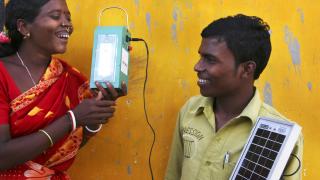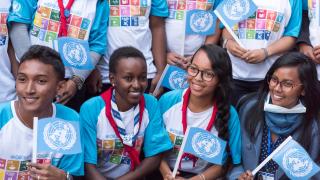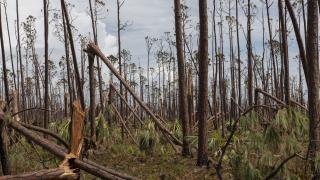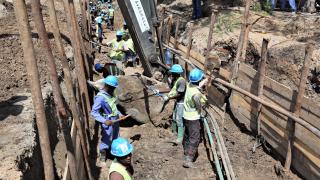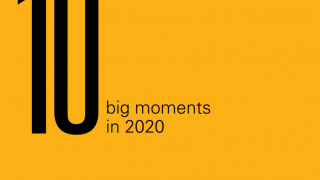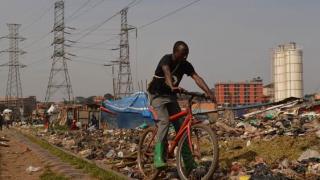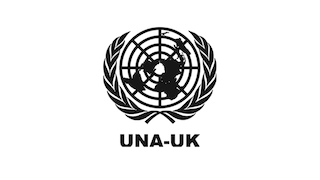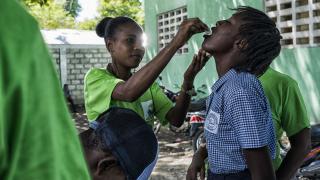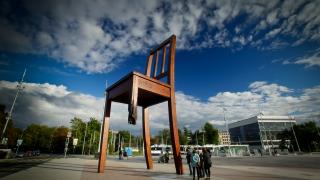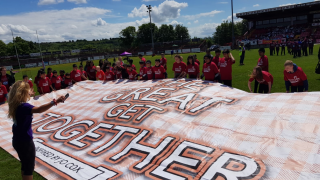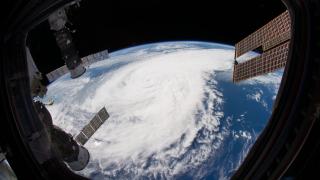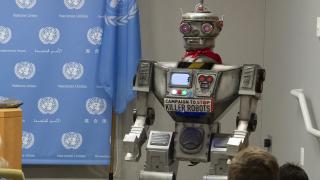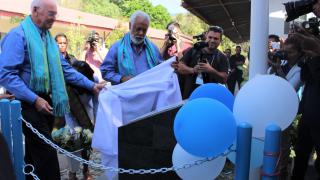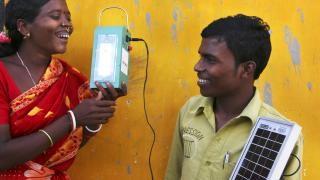
Are humans among the species now threatened with extinction? That is the question underpinning this issue of UNA-UK’s magazine.
This decade began with the fallout from the global financial crisis and failure to tackle climate change at what was billed as a make-or-break summit in Copenhagen. Ten years on, our language has evolved to reflect the urgency of the climate emergency, but our actions are yet to catch up.Turmoil seems to have infected all regions of the world and all spheres of life.
We are seeing a rise of nationalist sentiment and extremism, of unilateral approaches and attacks on international laws and norms. This is making the environment for decision-making even harder.
Just when we desperately need global solutions, international cooperation is being questioned, even undermined in some quarters.
We have been pummelled by political shocks and social upheaval, environmental disasters and man-made crises. And it feels as though we have yet to reach peak uncertainty. Hardly a day goes by at the United Nations in New York, where I am currently on sabbatical, without someone expressing utter disbelief at some turn of events.
I was torn about leaving the UK during this turbulent period for the country. It feels like a time when those with an international outlook must stand up and be counted. We must help craft a compelling vision of Britain as a global leader in peace, sustainable development and human rights. At the same time, we must reflect with humility and honesty on our own challenges, on our past, and on our role in the world – as a force for immense good, but also as the cause of immense suffering.
Despite the political fault lines, I firmly believe that there is a clear majority in the UK for far-sighted and principled leadership; for human rights; for a kinder, more compassionate politics; and for a Global Britain whose power and influence comes from its contribution to a safer, fairer and more sustainable world.
But I decided to make the move because the UNA-UK team will continue to make that case vigorously under the excellent leadership of Angie Pankhania; and because the challenges we face in this country are mirrored across the world.
We have just one year left to avoid the worst impacts of the climate crisis. We urgently need to reverse environmental degradation. We need to manage the transition from the largest-ever generation of young people to the largest generation of over-65s, which will take place between now and 2050.
We need to find ways to address longrunning conflicts and new forms of violence, as civilian deaths rise, millions are displaced and more people are killed as a result of homicide than war and terrorism. We have to get to grips with rapid changes in technology which are transforming how we live, work and engage with each other. They are also redefining power and security – from cyberattacks to deepfakes, killer robots to data mining.
We urgently need a new social contract to address entrenched inequalities and the growing disconnect between people, governments and institutions. Justified concerns about unchecked globalisation have mutated into a backlash against the very principles that give power to the people, such as human rights, gender equality and social justice.
The 75th anniversary of the end of the Second World War next year – and of the Holocaust, of Hiroshima and Nagasaki – should serve as a reminder that erosion of international cooperation, of civility and hope, leads to atrocities and war. This time, war could wipe out humanity.
In short, the world is a mess. And if the world was a friend of mine, I’d be sitting it down and saying: look, we really need to talk.
And that is basically what the UN wants to do for its 75th anniversary. Not throw a big party. Not pontificate about its achievements – although we will not, and should not, downplay the huge contribution the Organization has made to almost every aspect of human endeavour.
Instead, we want to launch the biggestever global conversation on the future we want, and where we are headed if current trends continue. We also want to crowdsource solutions on how we can close the gap between the two. UNA-UK’s Together First campaign will be a key partner in generating transformative and feasible proposals for action.
We want to bring new voices into conversations on global governance, including young people and our critics.Above all, we want to listen and learn.
From January 2020, we will work with partners across the world to hold dialogues in classrooms and boardrooms, parliaments and village halls, on the street and online – in all 193 UN Member States.
The findings will be published online and disseminated through our networks in countries and communities. They will also be presented to world leaders at the official event to mark the anniversary in September next year.
I really hope that all of you will take part. You can start by visiting www.un.org/UN75 and taking our short survey to ensure your views are counted. You can also organise a UN75 dialogue – the website has everything you need, including a toolkit for moderators, feedback survey, issue briefings and film material. And you can turn to UNA-UK, which is part of the UK’s national UN75 committee, for support.
The world is approaching a number of tipping points – environmental, economic, political and social – but we are not yet at the point of no return. We need your help to change course, and to build a better future together.
Photo: Bundei Hidreka 31, (left) teaches Rohim MIniaka, 20, how to make a solar lamp. Hidreka and other solar engineers in Tinginaput, India are passing on their skills to other villagers. © Abbie Trayler-Smith/Panos Pictures/ UK Department for International Development


